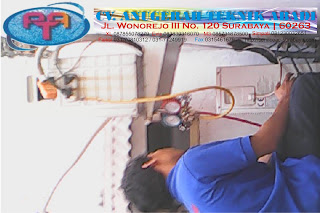 Quality score has a dramatic effect on your keywords cost per click and position in the search results.
Quality score has a dramatic effect on your keywords cost per click and position in the search results.
Our customers, many of who invest thousands (£) in 'Pay-Per-Click' campaigns, are often mystified by how their quality scores are calculated and seek our advice on Pay-Per-Click-Management.
The purpose therefore of this article is to demystify Google's quality score algorithm, with a real-world example, including 10 ways in which you too could improve your quality score.
As most of us know, Google's quality score ranges from 1 to 10, 10 being the highest. The higher the score, the lower the cost per click. You could argue that this isn't the granular information you need, but it has been a great help for those trying to diagnose why their PPC bids are so high.
Towards the tail end of 2012, a new client who sought advice on lowering their minimum cost per click approached us. The brief was to reach a wider audience, achieve a higher click-through and ultimately increase their Google Adwords ROI.
Due to a healthy profit margin, our client was already experiencing a generous ROI using Adwords, however their quality score was low and they realised they could do a lot better.
On average, their minimum CPC was £1.60 across three ad groups. Each Ad Group had 80 keywords. Upon examination, we could see that almost 80% of their keywords had a "Poor" quality score. Hypothetically, lets say our client sold "DVD's".
Here are 10 things we did to help them from a Google Adwords and SEO perspective:
GOOGLE ADWORDS IMPROVEMENTS
1. Smaller more targeted Ad Groups
Downloading and installing Google Adwords editor, we were then able to use the in built keyword grouper tool, grouping keywords into 10 groups of 24 targeted and related keywords.
For example:
a. buy DVD's
b. exchange DVD's
c. what is a DVD
d. buy DVD's online

2. Focused advert content for each group
We then wrote specific and relevant ad content (words) for each keyword group using the common product name "DVD's" What's important to note with the advert is that the keyword (DVD) is used in the advert title, content and display URL. This is common across ALL ads. As an aside, it's worth pointing out that the display URL does not need to match the actual URL.
3. Optimised Content & Call to Action
For each group, we created 4 targeted ads, using different hooks and calls to action. To accurately monitor and test which adverts perform the best, we turned "Ad rotation" off. Over the course of 10 days we monitored which advert performed the best, then deleted the others. The next stage was to then work on variations of the selected advert, which would improve the "click through rate" even further. Another two weeks and it was clear to see which was the better performing ad. Over a four week period, the overall campaign click through rate was up.

4. Broad, Phrase or Exact Matching Options
When they initially approached us, our client was exclusively using "broad match" for all keywords across each campaign. For each keyword, we added "exact match" and "phrase match" counter-parts to each ad group. Once this had bedded down, we chose which of the three (broad, exact or phrase match) had a better "quality score" and lower minimum "cost per click", then deleted the other two matching options. Overall, "exact match" won in the majority of comparisons.

5. Deep Backlink Building
Contextual backlinks to the client's ecommerce site help the "quality score". We therefore ran a manual deep link building campaign using the highest performing keywords (Volume & Conversion Rate). It is also important to note that these same links will also fuel and significantly improve future SEO campaigns.
6. General Housekeeping
It is often overlooked but sitemaps are still vital if search engines are to find and rank pages. We therefore created and submitted a sitemap to Google and Bing. On a more general note, we made the site semantically coded, corrected navigational issues and linked key pages (privacy policy, terms & conditions and about us) from the footer.
7. Multi-Variant Landing Pages
"Google Content Experiments" allowed us to test how well different versions of our customers pages worked in getting visitors to purchase products. We were able to test up to five variations of a specific page to see which drove the most conversions. We cannot stress the importance of conversion testing enough.

8. Meta, Meta, Meta
Contrary to popular misconception, don't under estimate the importance and effectiveness of on-page "Meta Data". Not only did we add the best performing keywords to the Meta tags on each page but also the text from the best performing advert was inserted in to Meta description. In addition, the best performing and most descriptive keyword was used as the title tag.
9. On Page Content
The best performing keywords and phrases from Google Adwords were injected in to the on-page content of the linked landing pages. Most in to the first sentence or paragraph of the page.
10. Google Relevancy
Using the Google Adwords Keywords Tool we made sure that Google recognised each landing page was related to the targeted keywords. Following a little "tweaking", Google saw each landing page was related to the keywords we used.

Results
Over a four week period, we witnessed the Quality Score for 65% of the keywords go from "Below Average" to "Above Average" and the minimum CPC cost down by a staggering 900% across the board (for example, was £0.40p down to £0.4p).
Sumber :http://girilaya.com/index.php/social-network/google-adwords-how-to-increase-your-quality-score








